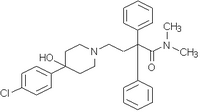If you're headed to the trails for an extended trip this season, be prepared for ailments ranging from diarrhea to tick bites. Here, David Boulware, M.D., of the Division of Infectious Disease and International Health in the Department of Medicine at the University of Minnesota offers advice on the best ways to avoid and treat some common wilderness-hiking woes.
* AILMENT Diarrhea
PREVENTION Always disinfect water with iodine or a filtration system. Wash or disinfect your hands with soap and water or alcohol-based hand sanitizers, and clean cookware and utensils thoroughly with soap and water.
TREATMENT Stay hydrated; take Imodium or Pepto-Bismol as needed.
SEE A DOCTOR IF diarrhea is accompanied by a fever, bloody stool and/or lasts more than two weeks.
* AILMENT Foot blisters
PREVENTION Buy footwear that fits well and break it in prior to your trip; stop friction on "hot spots" immediately by taking a break and applying tape or padding.
TREATMENT Tape affected area or use blister pads, such as Spenco 2nd Skin Blister Pads or Band-Aid Advanced Healing Blister pads.
SEE A DOCTOR IF a blister becomes infected.
* AILMENT Joint pain, body and back aches
PREVENTION Travel lighter: Your backpack shouldn't be more than 15 percent of your body weight. Rest regularly to avoid overuse injuries.
TREATMENT Rest, compress and elevate sore joints. Ice them if possible, or take an over-the-counter nonsteroidal anti-inflammatory such as ibuprofen.
SEE A DOCTOR IF the pain persists or worsens, which could indicate an overuse injury such as a severe strain or sprain.
* AILMENT Tick bites
PREVENTION Wear long pants and high socks; pre-treat clothes with permethrin, an insecticide found at outdoor adventure stores; check body regularly.
TREATMENT If the tick is still on you, remove it immediately by grasping its head with tweezers and pulling it straight away from your skin.
SEE A DOCTOR IF you experience symptoms of Lyme disease or Rocky Mountain spotted fever (RMSF). About three days or more after a bite, symptoms of either disease may include rash, fever, severe headaches, muscle aches, chills and extreme exhaustion. If untreated, Lyme disease can cause arthritis and other painful afflictions, while RMSF can lead to serious illness or death.--A.V.
COPYRIGHT 2004 Weider Publications
COPYRIGHT 2004 Gale Group



